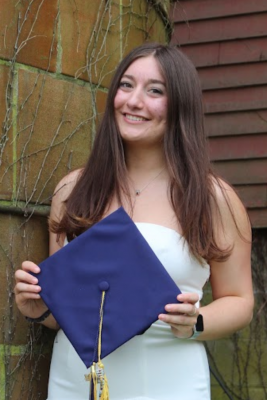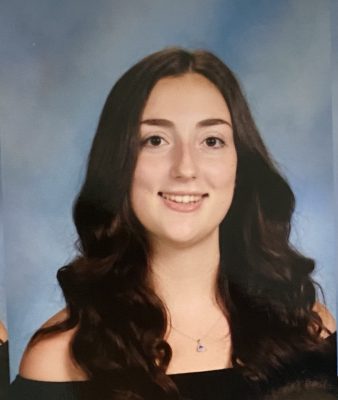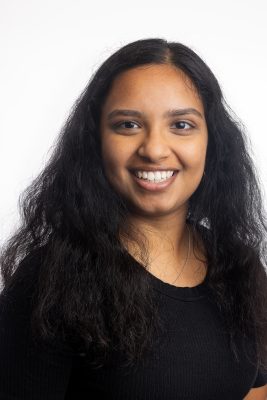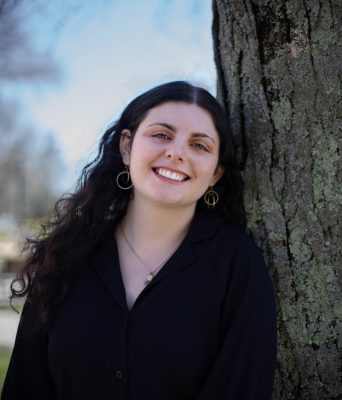DGS Students Experiential Learning
- Angela LaRue’s DGS lab
- Diagnostic Genetic Sciences is an upper division, professional, accredited laboratory genetics-based program.
- DGS students take courses including molecular technologies, cancer biology, cytogenetics, scientific writing, and immunology.
- Students are at the Storrs campus for three semesters then complete an off-campus clinical rotation in molecular diagnostics.
- The Diagnostic Genetic Sciences major leads to a Bachelor of Science degree. There is also a Post-Baccalaureate Certificate available.
- Diagnostic Genetic Scientists evaluate and investigate DNA and RNA with regards to disease, identity, cancer, and forensics.
- DGS majors work in diagnostics, research, public health, etc. or go on to grad school in genetic counseling, biotechnology, bioinformatics, dentistry, medicine, PA, etc.
- Upon graduation, students are eligible to sit for the MB(ASCP) certification exam offered by the Board of Certification of the American Society for Clinical Pathology (ASCP)

Stephanie Ballas
My journey through the Diagnostic Genetic Sciences (DGS) program has been nothing short of transformative. This tight knit program made up of under twenty students has allowed me to surround myself with a community who not only share my passion for the field but also have become lifelong friends. The unique learning environments of the classroom, laboratory, and clinical experience combine to offer a comprehensive and engaging education, preparing myself and my peers for the future.
What truly sets the DGS program apart is its emphasis on real-world experience. Through the program I had the opportunity to work as a full time clinical student at Hartford Hospital as well as work per diem for them throughout my clinical semester. This practical exposure allowed me to seamlessly integrate classroom learning with real-world applications, bridging the gap between academia and professional practice.
The guidance and mentorship provided by the faculty, especially Professor Anamani, were instrumental in my growth and development. Their expertise and unwavering support empowered me to gain knowledge and skills, which have prepared me for the working world and my future career.
Thanks to the preparation I received through the DGS program and through my clinical experience I have been offered a position as a Molecular Technologist at Hartford Hospital even before graduating. I am excited to continue my genetics journey post graduation in this position!
I am immensely grateful for the DGS program and all of the knowledge and skills it has equipped me with. My UConn experience would have not have been the same without the DGS program.

Mary De Lise
This past summer, I worked as the Inpatient Genetic Counseling Intern at Cohen Children’s Hospital in New Hyde Park, NY. Our Inpatient Genetics Team serviced Northwell hospitals across Long Island and the boroughs of New York City, providing care and counseling to patients aged newborn to adolescent. My role on the team was multifaceted and included filling out all requisition forms for tests being ordered, researching variants of uncertain significance (VUSs) reported back from our lab, collecting pedigrees from families, and organizing patient files for increased efficiency upon readmission to the hospital. This experience taught me just how crucial an interdisciplinary approach to genetic counseling is, because each day the team and I collaborated with different health professionals, including metabolic specialists, neonatologists, nurse practitioners, clinical geneticists, and case managers. Each person on the team played an essential role in patient care, all determined to provide the patient and their family with an answer to the underlying genetic etiology for their presentation at Cohen’s. This internship showed me what I can expect when entering the genetic counseling (GC) field and how to best prepare for a master’s program; but more importantly, it taught me how rewarding it can be when patients are finally given an explanation for their health struggles, knowing that we played a part in their relief. I cannot thank the Inpatient Team at Cohen’s enough for adeptly answering my questions and teaching me how to continually advocate for patients.
I would like to give my utmost thanks to Holly Brown, Savannah Kile, Georgia Loucopoulos, and Sharon Chen at Cohen Children’s for mentoring me and allowing me this tremendous opportunity. Special thanks are also due to Angela LaRue, UConn DGS faculty member, for connecting me with Holly Brown, who informed me of the internship and interview process last fall. To anyone hoping to get involved in genetic counseling in the Long Island region, I wholeheartedly recommend this program and would be more than happy to help facilitate a connection with the faculty at Cohen Children’s.

Sri Kadimi
This summer I worked as a medical assistant at a small, private primary care practice in Bridgeport, CT. My responsibilities included taking patients’ vitals and medical history, performing EKGs, charting, filing paperwork, making/answering phone calls, and scheduling appointments. This was a great experience working in a medical setting, as I learned a lot about the inner workings of a physician’s office, and I was able to directly engage with patients from all walks of life. Additionally, courses through the Allied Health Department, such as Medical Terminology, gave me a solid foundation for understanding doctors’ notes and performing my tasks more effectively. After graduating from the DGS program, I plan to continue working as a medical assistant for 1-2 years to gain direct patient care experience before applying to PA (Physician Assistant) schools.

Alexandra Carabetta
Throughout my years at UConn, I've always sought out a wide array of research experiences in different fields to narrow down my career interests and become a better scientist. I am a Diagnostic Genetic Sciences major for this reason: to experience as much research as possible during my four years at UConn. My experience in DGS has helped me hone my scientific skills more than I could have imagined before starting. Because of this, I was accepted into the Boyce Thompson Institute and Cornell University's Plant Genome Research Experience for Undergraduates program this summer, and I had a blast!
My research project focused on how plants regulate copper and iron deficiency. Through this, I learned a lot of new lab techniques, which included growing over 300 plant samples and extracting their proteins! This experience also led to some other awesome moments: I got to present my research with Dr. Lisa Nigro from UConn at a Cornell symposium, I toured a particle accelerator, and I got to meet so many incredible friends from all over the world.
Now, I've transitioned into my DGS clinical internship at Yale School of Medicine more prepared than ever. While my summer wasn't related to clinical genetics, it still made me a more confident person who can see herself as a scientist in the future. I've loved my time at Yale so far and have kept learning and growing, now in the clinical lab setting. I'm grateful to the DGS program for this awesome experience. After I graduate, I plan to get my PhD in plant pathology, with my end goal to be a researcher and educator. All of the opportunities, including this summer internship and my experience as a DGS major, have imbued the confidence in me to achieve this, something I could have never thought of in my freshman year at UConn. I can't wait for what's to come!